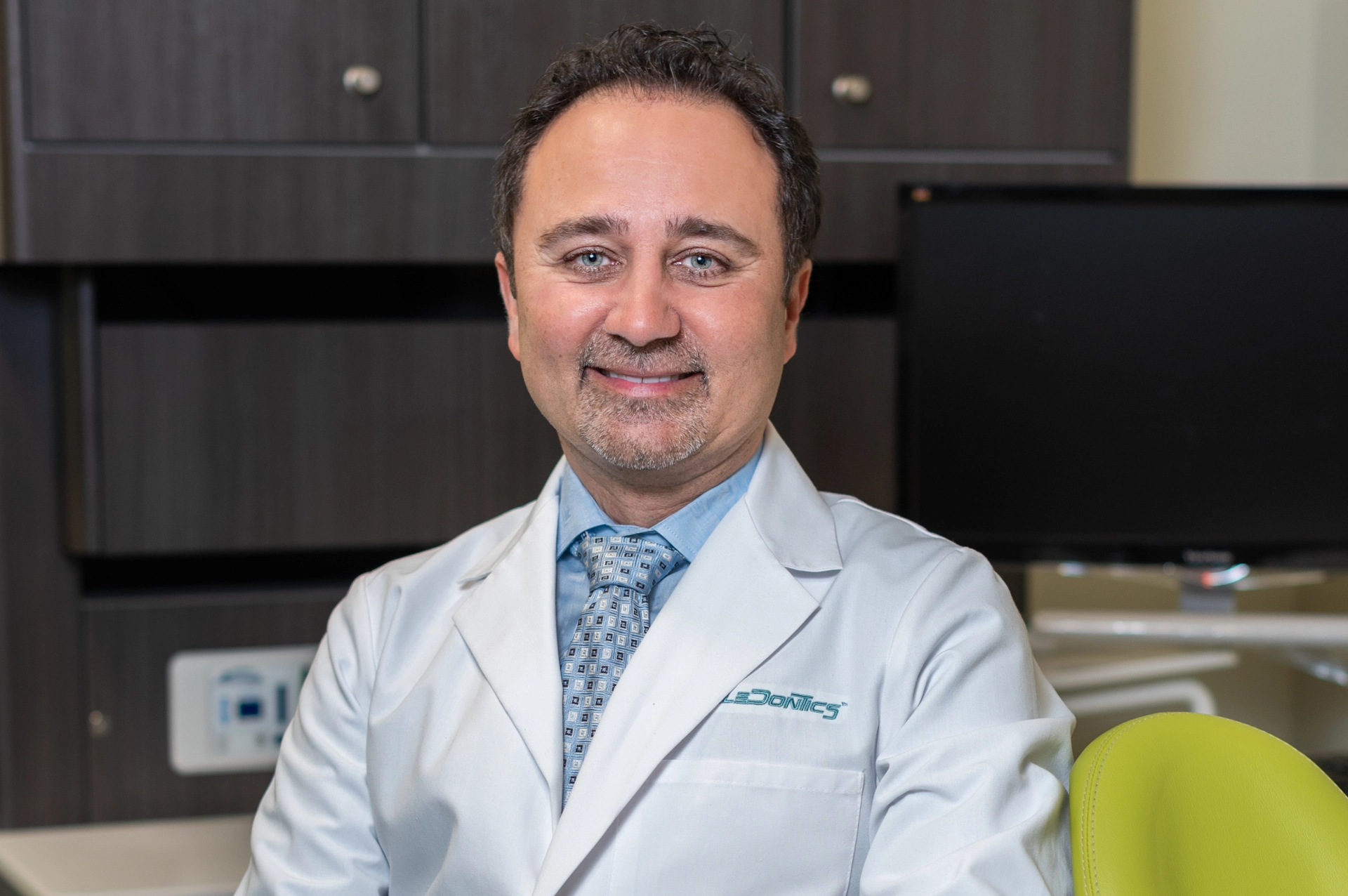
When you’re pregnant, there are a lot of new dos and don’ts, and it can be hard to keep track of what you should do and what you should avoid. Going to the dentist might be one of those things that seems confusing. Let’s clarify the rules when it comes to going to the dentist while pregnant and what you should expect.
Should You Go to the Dentist When Pregnant?
You should absolutely go to the dentist while pregnant! Not only is it safe, but it can actually be one of the most important times to see your dentist. Just like the rest of your body, pregnancy can take its toll on your mouth. Seeing your dentist could stop a small problem from getting worse.
Here are some potential issues you could experience that make it important to go to the dentist when pregnant.
-
- Tooth Decay: When you’re pregnant, you’re at a greater risk of tooth decay for a number of reasons. If you have morning sickness, you may be finding it difficult to brush and floss as thoroughly without gagging. This gives bacteria more opportunities to grow in your mouth and cause tooth decay. Additionally, you may be throwing up, and repeated exposure to stomach acid can impact the health of your enamel. You may also be snacking more than normal and eating sticky, tummy-friendly carbs like crackers, all of which increases the risk of tooth decay.
- Gingivitis: Your pregnancy hormones impact just about every part of your body, and that includes your gums. Some people develop pregnancy gingivitis, which is an inflammation of your gums, causing tenderness and possibly bleeding when brushing or flossing. Your gums may need extra care as a result.
- Pregnancy tumors: These overgrowths of tissue on the gums sound much scarier than they actually are. They are not cancerous, but can be uncomfortable and bleed easily. They can also be unsightly with a raw, red, raspberry appearance.
- Tooth Decay: When you’re pregnant, you’re at a greater risk of tooth decay for a number of reasons. If you have morning sickness, you may be finding it difficult to brush and floss as thoroughly without gagging. This gives bacteria more opportunities to grow in your mouth and cause tooth decay. Additionally, you may be throwing up, and repeated exposure to stomach acid can impact the health of your enamel. You may also be snacking more than normal and eating sticky, tummy-friendly carbs like crackers, all of which increases the risk of tooth decay.
If you experience any of these issues during your pregnancy, it’s a good idea to see your dentist just in case. Regular cleanings will help, but don’t hesitate to make an extra appointment if you have any concerns.
When Should You Go to the Dentist When Pregnant?
There’s no reason to stray much from your regularly scheduled dentist appointments every six months, unless you have a concern. Just make sure you tell your dentist if you are or might be pregnant so that they can make adjustments accordingly. They may have a few extra questions for you or they may choose to wait on certain treatments until after your pregnancy.
What to Expect at the Dentist While Pregnant
Generally speaking, your dental appointment during your pregnancy won’t be much different than your usual appointments. You might find that your gums are a bit more sensitive, or that your gag reflex is stronger. Just let your dentist and hygienist know if you’re finding anything challenging before or during your appointment so they can help you.
If you go to the dentist during the third trimester of your pregnancy, you might find laying flat in the dentist chair is more uncomfortable. As such, scheduling during your second trimester might be the most comfortable option for you.
What to Do If You Need Dental Work While Pregnant
It is possible that you may need to get some routine dental work, like fillings or root canals, done while you are pregnant. While no one loves these procedures, getting this type of dental work while pregnant shouldn’t be a problem. The standard numbing medications like lidocaine have been shown to be safe for both the mother and the fetus. Even x-rays are an extremely low risk, though you will wear a leaded apron to minimize exposure to your belly anyway.
If you do need dental work, talk to your dentist about any concerns you may have so that they can help address them. Make sure you tell your dentist about any medications you may be taking for your pregnancy so that they are aware and can make sure that there are no interactions with any other drugs you may need to use. If you need medication after dental work while pregnant, your doctor will tell you what is acceptable during pregnancy. Acetaminophen and codeine are commonly given and safe to take during your pregnancy.
Get Ready to Go to the Dentist When Pregnant
Taking care of your body is particularly important when you’re pregnant. Since you will provide all the nutrients and basis for health for your little one, maintaining your oral health is essential. The health of your mouth is connected to the health of your entire body, and if you allow tooth decay or gingivitis to continue unchecked, it could impact your health and the health of the fetus. Alternately, taking great care of your mouth helps ensure that the fetus stays healthy, too.
You can protect your health and the health of your baby by continuing to go to the dentist when pregnant. You’ll be taking good care of your own mouth, but you’ll also be taking care of your overall health, which ultimately benefits your baby’s health. This is the start of setting your baby up for a future of good health, including a healthy mouth.
To find out more about how your oral health is connected to your whole body health, whether you’re pregnant or not, preorder If Your Mouth Could Talk by renowned dental expert, dentist, and dad Dr. Kami Hoss. You can learn more about how everything in the human life cycle is related to your mouth, as well as how to ensure good health by taking care of your oral health.
If you’re an expectant mother, chances are you’re already doing everything you can to set your baby up for a healthy future. Taking care of your own dental health by seeing the dentist while pregnant is one more way to take care of your baby’s future health.
Sources:
https://www.mouthhealthy.org/en/pregnancy/concerns

